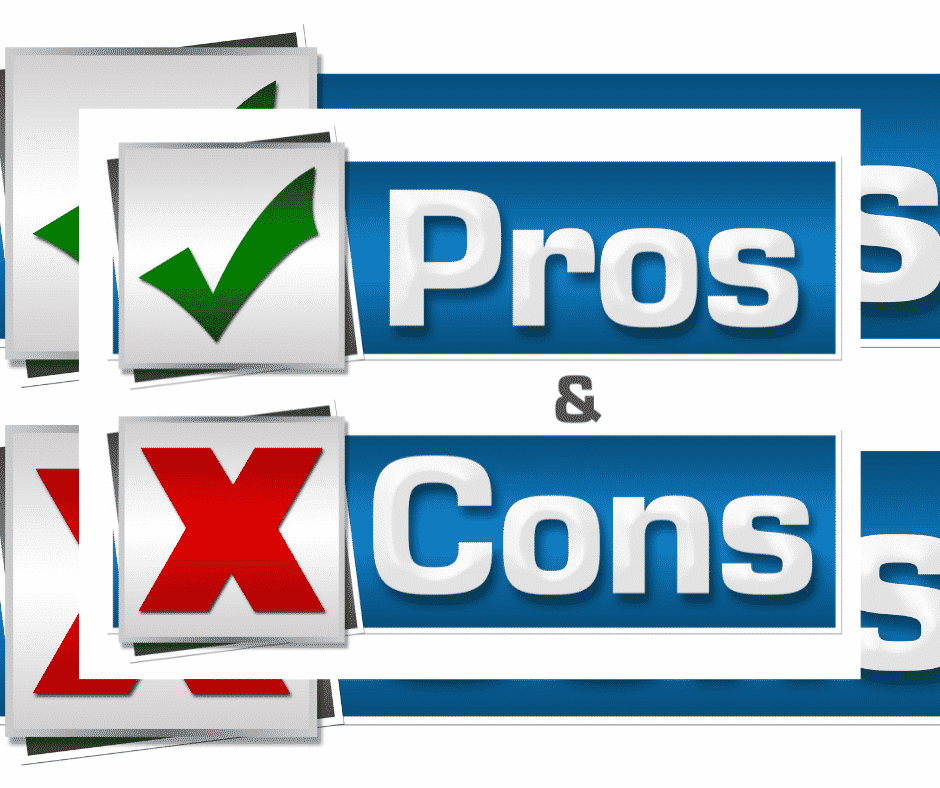Medicare Advantage PlansCategory:
Why do so many people bash Medicare Advantage? Yet, in every Part of the country, Medicare plans are expanding, and more people are joining. Why are Medicare Advantage plans considered so bad when they attract so many people and keep them as loyal customers?
 What Makes Medicare Advantage Plans Bad?
What Makes Medicare Advantage Plans Bad?
The main reason is location, location, location. Medicare Advantage plans are designed for a particular location, usually a county or collection of counties that make up a region. Medicare Advantage is unlike Original Medicare (only Part A and Part B). Original Medicare is uniform and homogenous throughout the country. Medicare Advantage is not. One plan with the same insurance company may drastically differ from one city to another. In the same state, a plan may be great in an urban area but incredibly poor in a rural area 40 miles away.
When people criticize Medicare Advantage, they create a straw man. They pick the worst locations and the weakest plans. Then they compare those Advantage plans to Original Medicare with the additional insurance product of a supplement. The plans they use as models have high out-of-pocket costs, high copays, limited networks, and low star ratings. Consequently, Medicare Advantage makes a poor showing in those instances.
What Are the Common Pitfalls of Medicare Advantage?
High Out-of-Pocket Costs
Critics claim that Medicare Advantage plans have high out-of-pocket costs. Medicare Advantage’s maximum out-of-pocket (MOOP) for 2023 is $8,300 nationally. That is the highest out-of-pocket an insurance company may charge on a Medicare Advantage plan.
highest out-of-pocket an insurance company may charge on a Medicare Advantage plan.
Insurance companies can set the maximum out-of-pocket (MOOP) lower than the allowed amount. On average, the MOOP was $4,972 in 2022 for in-network and $9,245 out-of-network nationwide.
The MOOP is the highest amount you are responsible for on the plan. Copays add up. If you meet the MOOP total of $8,330–or whatever the amount is–the plan pays 100% on any claims after that.
No Maximum Out-of-Pocket for Original Medicare
Compared to Original Medicare, however, Medicare Advantage has a top limit–a maximum out-of-pocket. Original Medicare has no maximum or cap on the Part A deductible. The Part B coinsurance is an unlimited 20%. Twenty percent of a million dollars is real money!
Those costs that Original Medicare does not pay are only covered if you purchase additional health insurance with a Medigap plan. You need to pay an additional amount to add a Medicare Supplement. A Medicare Supplement in the Omaha, Lincoln, and Council Bluffs areas for a 65-year-old ranges from $1,400–$2,000 per year for a Plan G on top of your Medicare Part B premium, which is currently $164.90.
I work primarily in the Omaha, Lincoln, and Council Bluffs Metro areas. Our maximum out-of-pockets are lower than the national average. Some Medicare Advantage plan MOOPs are as low as $3,800.
Nonetheless, $3,800 or $8,300 is a great deal of money for most people to come up with in a year’s time. It is a legitimate concern, so a person may wish to consider a Medigap Plan N or even High-Deductible Plan G as an alternative to Medicare Advantage. However, many people feel a $4,000 or $5,000 maximum annual out-of-pocket is reasonable for a health insurance plan. It is the same or lower than many employer health plans people had in the course of their working years.
‘Is There A Doctor In the House?’
 Like your employer health plans, Medicare Advantage plans are usually network plans. The most common types of plans are HMO (Health Maintenance Organization) and PPO (Preferred Provider Organization). The HMO plans generally mean you can only see health providers in the plan’s networks. If you go outside of the network–aside from emergencies–the plan will not pay. PPO plans allow you to go outside the networks to providers who take Medicare, but you may pay more for those services, and your MOOP will be higher.
Like your employer health plans, Medicare Advantage plans are usually network plans. The most common types of plans are HMO (Health Maintenance Organization) and PPO (Preferred Provider Organization). The HMO plans generally mean you can only see health providers in the plan’s networks. If you go outside of the network–aside from emergencies–the plan will not pay. PPO plans allow you to go outside the networks to providers who take Medicare, but you may pay more for those services, and your MOOP will be higher.
Network plans can be limited in certain areas. Many rural areas have weak Medicare advantage plans. One of the reasons is that many providers or medical facilities do not work with the plans yet. In those instances, Original Medicare would probably be a better choice with or without a Medicare Supplement.
In other places, I’ve found that the different medical networks compete aggressively against one another. Part of their strategies is to align with specific insurance companies providing Medicare Advantage against their competitors. In this way, a plan might have a limited network of doctors and hospitals. In those situations, an agent must be acutely aware of his client’s needs and weigh all the factors. Depending upon the limitations, Original Medicare may be the better alternative.
Medicare in our Omaha, Lincoln, and Council Bluffs areas are blessed with three robust networks that cooperate with the six insurance companies offering plans in the area. The three networks work with all the plans. Networks and access to providers are non-issues here.
Referral, Or Not Referral
Some Medicare Advantage plans require a referral from your primary care physician (PCP) to see a specialist. The purpose of the referral system is to coordinate care and reduce costs.
costs.
In our area, the HMO plans are “open access.” Open access means no referral is required to go to a specialist when you need one. As a matter of fact, it has been years since Medicare Advantage plans required referrals in our area. However, some plans in some areas still require referrals, which some feel is a drawback.
Medicare Advantage Plans Change Benefits Every Year
Critics of Medicare Advantage site plan changes as a negative for Medicare Advantage. However, Original Medicare also changes. Medigap companies increase premiums almost every year, even several times a year, because of age, higher than normal claims, and inflation. Medicare Part D prescription drug plans DEFINITELY change yearly–premiums, deductibles, copays, and formularies are reworked every year.
 Each year the Medicare Advantage plans mail out the ANOC (Annual Notice Of Changes). An example of changes is: the maximum out-of-pocket may increase. Copays may increase or decrease. Extra benefits, like dental and vision, may be increased or reduced, added or eliminated. You will experience change no matter which direction you go with Medicare.
Each year the Medicare Advantage plans mail out the ANOC (Annual Notice Of Changes). An example of changes is: the maximum out-of-pocket may increase. Copays may increase or decrease. Extra benefits, like dental and vision, may be increased or reduced, added or eliminated. You will experience change no matter which direction you go with Medicare.
Over the decade I have offered Medicare Supplements, Medicare Advantage Plans, and Medicare Part D prescription drug plans, all of them changed. Nobody is not changing–sorry for the bad grammar. Some years there are a lot of adjustments. Most of the time, the changes are minor. The changes really hinge on the funding the federal government pumps into Medicare or not and the rate of inflation.
In our area, the Medicare Advantage plans have actually gotten significantly stronger over time. MOOPs have lowered. Additional benefits, like dental, vision, and over-the-counter (OTC) items, were introduced and increased.
Medicare Part A & Part B usually change each year. The Part B premium increases, though it went down slightly this year. Deductibles increase. Part A deductible increased from $1,556 to $1,600 for 2023. Most people don’t notice Original Medicare changes because, if they have a Medigap policy, their supplement takes up the slack. They may not be aware until they get notice of a rate increase from the insurance company. Then, they blame the insurance company for the higher premium, not Medicare. A big part of the higher premium is because Medicare expanded the gap the insurance company needed to fill.
Part D Drug Changes
The biggest problem I have found with the Medicare benefits changing every year is with Part D prescription drug plans. Those on Original Medicare and a Medigap plan have Part D plans. The challenge is insurance companies change the drugs that are covered or not covered. The copays, deductibles, and premiums can change significantly in some years. Companies move drugs from one tier to another. The Gap (or “Donut Hole”) amount fluctuates from year to year. I find Part D plans change significantly compared with the drug element of Medicare Advantage plans.
Clients who ignore the changes in their Part D plan find themselves in a world of hurt come Jan. 1st when they go to the pharmacy counter to pay for their prescriptions.
Whether you are on the Medicare Advantage side or Medigap and Part D side, there is plenty of change to go around.
Medicare Advantage Plans Requires Prior Authorization
 Critics of Medicare Advantage point out that Original Medicare does not require prior authorization for most services. Medicare Advantage, however, does require prior authorization for many.
Critics of Medicare Advantage point out that Original Medicare does not require prior authorization for most services. Medicare Advantage, however, does require prior authorization for many.
The criticism is the delay that pre-approval causes. Detractors claim denials are higher for Medicare Advantage than Original Medicare, and the appeal process for denials is arduous.
Preauthorization can be a challenge. You may have faced it with your employer’s health plans. Getting approval from the insurance company is not a new idea. In the past with Medicare Advantage, denials may have been higher. Currently, denials are around 4 percent the first time around. Upon appeal, 75 percent of appeals are overturned. I hear more complaints from clients on Original Medicare and a Supplement. Last week, Medicare refused to pay for my client’s ambulance ride to the emergency room at 3 AM. I helped her with the appeal process.
For urgent cases, you can receive treatment and get approval afterward, or they will rush approval with a response in 72 hours or less.
Changing Your Medicare Advantage Plan
Medicare Advantage critics claim you can’t get out of your Medicare Advantage plan except during a short window of time each year.
Generally, you can only change your Medicare Advantage plan during the Annual Election Period (AEP), which is Oct. 15th- Dec. 7th each year. Ironically, for those on Original Medicare, that is the only time you can change your Medicare Part D prescription drug plan as well. Medicare limits everyone on Medicare in one way or another.
Medicare Advantage also has more times to change than those on Original Medicare. Medicare Advantage has its own unique Open Enrollment Period (OEP) from Jan. 1st–Mar. 31st, when you can make a one-time switch to another Medicare Advantage plan or change back to Original Medicare.
The advantage of Medicare Supplements critics assert is that you can change your supplement year-round. Changing a supplement, however, is subject to underwriting in most states. There is no underwriting for Medicare Advantage. Insurance companies offering Medicare Advantage plans must take you regardless of your health.
Medicare Advantage Does Not Travel
For many years Medicare Advantage plans were criticized because they were only local, especially HMO plans. The health coverage did not travel with you when you left home, except for emergencies.
for emergencies.
Now you are covered for not only emergencies anywhere in the U.S. and, in some cases, abroad, but there may also be in-network coverage. Many of the larger insurance companies also have national networks to which the HMO plans have access, so you could be outside your service area and still get service and pay in-network copays.
You can also select a PPO (Preferred Provider Organization) plan. In a PPO, you can go out of network to a provider who takes Medicare. You may pay a higher copay, and your total out-of-pocket may be larger than in-network, but you will have access to non-network doctors and hospitals with a PPO plan.
Medicare Advantage plans are bad when the networks are small, the MOOP and copays are high, and customer service makes prior authorization a headache. Many rural areas have Medicare Advantage plans that are bad. Some insurance companies design Medicare Advantage plans that are poorly constructed, even bad. Like markets for many products or services, the areas and the companies may not produce the best product or service.
Caveat Emptor – Let the Buyer Beware!
The consumer needs to do his due diligence and use a reputable agent who will give you an honest assessment of the products in your market. Does the plan have good access to medical providers? Are the copays and maximum out-of-pocket reasonable for your budget? Is the company behind the plan strong and well-staffed to provide good to excellent service?
Conclusion
In the decade I have offered Medicare plans and supplements, I have seen the landscape change regarding insurance companies and products. For Medicare in the Omaha, Lincoln, and Council Bluffs areas, Medicare Advantage plans have continually improved with broader access to networks, low copays and MOOPs, and tremendous service to resolve issues as they arise. Some other places are not as good for Medicare Advantage. Many counties in rural Nebraska and Iowa still have no Medicare Advantage plans, or the plans are very weak. Each plan needs to be judged on its own merits, particularly when you are comparing it to Original Medicare and a Medigap policy, and a Part D prescription drug plan.
The question has changed from “Why are Medicare Advantage plans so bad?” to “How are Medicare Advantage plans so good?”
When people compare Medicare with Medicare Advantage, they usually mean Medicare (Original Medicare) with a Medicare Supplement and a Medicare Part D prescription drug plan versus Medicare Advantage (Part C) with prescription drugs included.
The comparison is difficult because they are drastically different, so I believe a fair side-by-side comparison is impossible. That, however, does not stop people from asking the question of which is better, Medicare Advantage or Medicare Supplement.

Medicare Is Original Medicare: Part A & B
Original Medicare is Part A for hospitals, and Part B for doctor visits and outpatient procedures. Part A has a $1,600 per event deductible in 60 days without a cap. Part B is an 80/20 split. You pay the 20% coinsurance, and there is no limit on the 20%.
Original Medicare + Medicare Supplement
To fill in the gaps in Medicare, you may purchase a Medicare Supplement / Medigap policy. Depending on where you live and the company you choose, the monthly premium can range from $100 to $200 per month. You can fill in the gap entirely except for the first $226 with a Plan G. As you age past 65, the price of your Medicare Supplement will increase.
Sometimes, your supplement may increase by hundreds of dollars. I recently had someone referred to me who was paying over $300 for her Medigap Plan G policy. She was in her mid-70s. She passed through underwriting, so we switched her to another Medigap plan at half the cost. Some people, however, cannot pass underwriting and need to remain on their high and increased Medigap policy.
Medicare Supplement + Medicare Part D PDP
Part D prescriptions drug plan (PDP) is separate from your Medicare Supplement and a separate charge. Again, the premium can range from $10 to $100 per month, with different prices for your medication copays. The key to comparing Part D plans is the year’s total cost — monthly premium plus individual prescription copays.
Medicare Advantage Or Medicare Part C

Medicare Advantage (or Part C) is different. Private insurance companies take what Original Medicare does and has a maximum out-of-pocket cost cap. Original Medicare, remember, is unlimited.
Medicare Advantage breaks out each of the different services. For example, x-rays, outpatient surgeries, labs, emergency services, etc. The service is given small copays versus Original Medicare’s unlimited 20%. These minimal copays add up toward the maximum out-of-pocket (MOOP). Most years, you will not reach your maximum out-of-pocket. In most years, your out-of-pocket will be $500 or less.
Medicare Advantage Has a Maximum Out of Pocket
The maximum out-of-pocket (MOOP) nationally is currently $8,300. The Omaha, Lincoln, and Council Bluffs area average around $4,500 or less for the MOOP. Some of the plans’ MOOP is $3,900. Original Medicare does not cover your coinsurance or deductibles unless you make the additional purchase of a Medigap policy.
Most Medicare Advantage plans also include Part D prescription drug coverage. There is no separate charge. Most of the Medicare Advantage plans in our area are zero premium or are very low premium with prescriptions included. The prescription drug part of Medicare Advantage excludes the Part D deductible on most plans. The current Part D deductible on stand-alone prescription drug plans is $505.
The cost for Medicare Advantage with drug coverage is usually zero. Your only monthly cost is your Medicare Part B premium and possibly copays for the medications.
Over the years, Medicare Advantage copays have increased to reflect rising medical costs and inflation. The increase has been minimal, but that will change, I’m sure, in our current high-inflation atmosphere. The same will be valid for Original Medicare and Medicare Supplements.
Medicare Advantage Has Networks

Another difference that concerns people choosing between Medicare Supplement and Medicare Advantage is medical networks. This is a genuine concern in certain areas. In our Omaha, Lincoln, Council Bluffs metro area, there are principally three networks: CHI Health, Nebraska Medicine, & Methodists Health Systems. The Medicare Advantage plans in our area work with all three networks. It is a non-issue. In other places, the network system may be something to be aware of.
All the Medicare Advantage companies offer PPO (Preferred Provider Organization) options. You can go out of network to someone who accepts Medicare. You may pay more and have a larger MOOP, but there is that option. You are not confined exclusively to the plan network.
Also, many of the larger insurance companies offer national networks, so even within their HMO (Health Maintenance Organization) system, you may still be able to see doctors and hospitals outside your local service area and pay in-network copays.
Medicare Advantage Prior Authorization vs Original Medicare & Supplement
The other difference between Original Medicare / Medicare Supplement and Medicare Advantage is preapproval. Original Medicare does not require prior authorization for most procedures and services. Medicare Advantage is the reverse. This is an unusual concern because, during all your working years, your insurance companies required prior authorization for any services of any cost or significance.
With Medicare Advantage, there is really no change. Those who do not favor Medicare Advantage put this out as a deficiency in the program. In my experience and statistically speaking, most denials in the big picture are overturned. The national average for Medicare Advantage denials is 4 percent. Those denials are usually attributed to a lack of explanation and documentation on the provider’s part. The fix is usually an easy and quick remedy when the effort is put in to correct the error.
How Much Risk Do You Want to Carry?
Original Medicare with a Medigap policy and Part D prescription drug plan is the most comprehensive Medicare insurance. You have reduced risk to the lowest level. The trade-off is you pay an ever-increasing premium for the convenience of not paying copays or an expensive year when you require many medical services.
Medicare Advantage saves you a monthly premium upfront, but you will pay copays as services are required. You may even reach your maximum out-of-pocket during a challenging year. That is the trade-off.
Networks are something to consider with Medicare Advantage. That consideration should be based on a case-by-case basis, depending on your location. But with national networks and PPO plans, the network issue is not the issue it was a few years ago.
How much risk do you wish to assume, and how much do you want to budget toward healthcare? The answer to those questions is the solution to which is better Medicare Advantage vs. Medicare Supplements.

What Are Medicare Advantage Plans First of All?
Medicare Advantage Plans, sometimes called “Part C” or “MA Plans,” are an “all in one” alternative to Original Medicare. Original Medicare is just Part A and Part B. It is Original Medicare because that is how “originally” Medicare started.
Private insurance companies approved by Medicare create and offer Medicare Advantage plans. The Medicare Advantage plan must offer as much as Original Medicare but usually offer much more. CMS (Center For Medicare & Medicaid Services) oversees the design of each plan and monitors and evaluates the plan’s service.
If you join a Medicare Advantage Plan, you still have Medicare. These “bundled” plans include Medicare Part A for hospital insurance, Medicare Part B for doctor and outpatient procedures, and usually Medicare Part D for prescription drug plans. Nebraska Medicare Advantage Plans cover the state from Omaha to Scotts Bluff.
Is Medicare Advantage plans worth it?
County Is King With Medicare Advantage Plans
Medicare Advantage plans are established geographically compared with Original Medicare, which is a homogeneous, national program. The Nebraska Medicare Advantage plans are designed for a specific county, the size of the population in the county, and the average health care costs in that county. The amount of monthly payments from Medicare depends on two main factors.
and the average health care costs in that county. The amount of monthly payments from Medicare depends on two main factors.
What Are the Mechanics of How Medicare Advantage Plans Work?
The two factors are: what are the medical costs in certain areas of Nebraska, and what are those particular Nebraskans’ health?
 CMS (Center for Medicare & Medicaid Services) constructed a bidding process for the insurance companies. The advantage plan submits bids to Medicare based on the estimated cost of Part A and Part B per person. Then Medicare compares the amount of the bid against benchmarks. Each county has its own benchmarks based upon average billing for specific procedures. If the bid is above the average, the beneficiary pays the difference. If the bid is below, the additional funds supplement the overall plan through lower co-pays and premiums.
CMS (Center for Medicare & Medicaid Services) constructed a bidding process for the insurance companies. The advantage plan submits bids to Medicare based on the estimated cost of Part A and Part B per person. Then Medicare compares the amount of the bid against benchmarks. Each county has its own benchmarks based upon average billing for specific procedures. If the bid is above the average, the beneficiary pays the difference. If the bid is below, the additional funds supplement the overall plan through lower co-pays and premiums.
The patient risk assessment determines the amount paid to the Nebraska Medicare Advantage plan. Each patient has a risk assessment. A person may be at average risk if they have a certain illness, greater risk, or less. Their score determines what Medicare pays for the beneficiary in the Nebraska Medicare Advantage plan.
After establishing the base rate, Medicare uses risk adjustment to change the rate to reflect the anticipated healthcare costs of a person enrolled in a plan. For example, if someone has a risk score of 1.0, it means that their expected costs are equal to those of an individual with average health. A risk score of 0.5 indicates that the expected costs are half of those of the average person, while a risk score of 2.0 indicates the expected costs are double those of the average person. Can you believe how complex Medicare has made this?
There are 24 Nebraska Medicare Advantage Plans in the Omaha metro. The Nebraska Medicare Advantage plans in rural Nebraska are much fewer. For example, Nebraska Medicare Advantage plans number only two in the Scotts Bluff area. There are four Medicare Advantage plans in North Platte, while Kearney, Nebraska Medicare Advantage plans number fourteen. The strength of the plan depends upon the size of the senior population.
The plans in the rural areas are also not as rich as the Medicare Advantage plans in Omaha and Lincoln.
The Blue Cross insurance companies are not-for-profit organizations, and they are tied to a particular state, such as Blue Cross & Blue Shield of Nebraska. Consequently, the Blues make a big effort to cover as much of a state as possible, but even with that intent and their financial where-for-all, Blue Cross cannot suspend the laws of economics. There is not enough Medicare reimbursement to create a Nebraska Medicare Advantage plan to cover every county and provide a minimum coverage.
What Is A Medicare Dual Advantage Plan?
Nebraska Medicare Advantage Plans also work with Nebraska Medicaid. Dual Medicare Advantage plans refer to someone who has both Medicare and Medicaid simultaneously. Nebraska Medicaid acts as a supplement to the Medicare plan. The state Medicaid program pays the Part B monthly premium. It covers copays when the person has “full Medicaid.” There are four levels of Medicaid. The bottom two are full Medicaid. Nebraska has three Medicare dual advantage plans among three different insurance companies.
Medicaid simultaneously. Nebraska Medicaid acts as a supplement to the Medicare plan. The state Medicaid program pays the Part B monthly premium. It covers copays when the person has “full Medicaid.” There are four levels of Medicaid. The bottom two are full Medicaid. Nebraska has three Medicare dual advantage plans among three different insurance companies.
The advantage of these Medicare Nebraska dual advantage plans is doctors who may not normally take Medicaid may be in-network for the dual plan. This could expand your access to doctors you otherwise could not see in some areas. The Nebraska Dual Medicare Advantage plans provide extra benefits that Original Medicare or Medicaid alone do not offer, such as additional dental, vision, hearing, over-the-count items, transportation, and gym membership.
The insurance companies design dual plans for the chronically ill, such as diabetics, coronary disease, and COPD. These special needs Medicare Advantage plans provide extra benefits that specifically address clients’ unique health needs. The insurance companies have special teams of health professionals who serve the chronically ill. Original Medicare and Medicaid are not structured to provide these higher levels of service for a more vulnerable population.
Tens of millions of people are currently utilizing these plans throughout the country. These Nebraska dual Medicare Advantage plans are mostly on the higher population eastern side of the state.
Where Are the Best Medicare Advantage Plans in Nebraska?
 Best is always a relative term. What is best for one person may not be for another.
Best is always a relative term. What is best for one person may not be for another.
One of the advantages of the Medicare Advantage plans in Nebraska is access to networks. Doctor and medical facility access is one of the major criticisms of advantage plans, but access in the Omaha, Lincoln, and Council Bluffs areas is superb.
There are principally three networks in the Omaha area: CHI (Creighton Health Initiative), UNMC (University of Nebraska Medical Center), and Methodist. All three of these networks work with the insurance companies offering Medicare Advantage plans in Nebraska. Unfortunately, the access diminishes once you are west of Lincoln and Lancaster county. People in more rural areas need to be careful that their doctors and hospitals are in their plans system.
Is Medicare Advantage Worth It?
The Medicare Advantage plans in the Omaha, Lincoln, and Council Bluffs Metro are as rich as in other parts of the country. Premiums are very low or zero, co-pays and maximum out-of-pockets are low. Additional benefits, like dental, vision, and hearing, are very good and getting better. That is why the number of people enrolling in Medicare Advantage plans nationwide and locally in Omaha, Lincoln, and Council Bluffs continues to grow. The year-over-year growth in Medicare Advantage plans in the Omaha Metro area is the sign Medicare Advantage is worth it.

Christopher Grimmond
There are seven insurance companies that have Medicare Advantage plan contracts in Nebraska: United Healthcare, Aetna, Humana, and Blue Cross of Nebraska with very strong Medicare star ratings. These plans have been in the area for years.
Bright, Medica, and Wellcare Medicare Advantage plans just came to Nebraska in 2022. They will not have star ratings from CMS (Center For Medicare & Medicaid Services) for another two years.
As part of our presentation, we review these 22 plans–the copays, maximum out-of-pockets, and the additional benefits. There are no preference or sweetheart deals with any of the insurance companies. We objectively lay out the details of each plan for your inspection and consideration. Medicare Supplements are also, of course, part of the presentation.
Call us at 402-614-3389 to see if the Medicare Advantage plans in Nebraska are worth it for you.
 What Is the Medicare Advantage Controversy About?
What Is the Medicare Advantage Controversy About?
Medicare Advantage plans (MA plans) or Medicare Part C is Medicare. Confused people get it wrong. Some will call MA plans a “Medicare replacement plan.” Others will claim Medicare Part C is not Medicare. Let me let you in on a little secret. Medicare is in the name–“Medicare Part C,” like Medicare Part A, Medicare Part B, and Medicare Part D. The other name it goes by is Medicare Advantage. At the same time, Medicare Part A and Part B are referred to as “Original Medicare” because they were the first Medicare insurance programs in the history of Medicare.
Medicare partners with private health insurance companies. The Center for Medicare & Medicaid Services (CMS) provides the criteria, structure, and funding to private insurance companies. The insurance company designs the Medicare plans under CMS’s direction. CMS must approve the plan before it is offered to the general public. The MA must cover and provide at least everything that Original Medicare (Part A and Part B) provides, though it may offer more. Many times MA plans include Part D prescription drug coverage as well. These types of plans have existed since the early 1990s.
Who’s Eligibility For Medicare Advantage?
Any Medicare beneficiary is eligible to enroll in a Medicare Advantage plan that is in his area. There are no health questions as with Medigap plans. Medigap (or Medicare Supplements) is private insurance. Outside your initial enrollment period for a Medigap policy, the insurance company may ask you health questions. Based upon your response, you could be rated or even denied coverage. Medicare Advantage plans, however, cannot deny coverage based upon preexistent conditions, current health issues, or weight.
Until this year, the one exception for Medicare Advantage plans was End-Stage Renal Disease (ESRD). ESRD means kidney disease that results in a significant reduction in kidney function. ESRD usually puts people on dialysis which makes them eligible for Medicare if they are younger than 65. Many become eligible for Socially Security disability too. Medicare Advantage plans, unless specially designed, did not cover ESRD until this year. Yeah!
My father’s had ESRD. We didn’t realize what was happening to him until years later. He went on dialysis. Eventually, he qualified for disability. It was not a smooth process back in the ’90s. Now that I am the age it happened to my father, I appreciate the hardship he went through and how scary it must have been both physically and financially. He never let on, and I didn’t realize.
How Does Medicare Advantage Plans Benefit You?
Medicare Advantage/Part C provides the health cover that Original Medicare (Part A and Part B) provides, but the pay structure is different. Instead of a Part A deductible per event in a 60 day period, there are small co-pays per event and/or per day.  While Medicare Part B co-insurance 20% is unlimited, MA plans have a Maximum Out-of-Pocket. Original Medicare’s share of cost is virtually unlimited. Medicare Advantage is limited in overall cost and in particular instances with minimal co-pays.
While Medicare Part B co-insurance 20% is unlimited, MA plans have a Maximum Out-of-Pocket. Original Medicare’s share of cost is virtually unlimited. Medicare Advantage is limited in overall cost and in particular instances with minimal co-pays.
Medicare Advantage also usually includes the drug plan at no additional cost. Many people who are on no medications or very few find this beneficial. They don’t want the expense of a Part D plan and premium, but they also do not want the Part D premium penalty for not enrolling in a Part D plan when eligible.
Many Medicare Advantage plans have some vision and dental coverage attached. Original Medicare does not cover these areas. The Medigap plans do not cover dental and vision unless you purchase a separate dental and vision plan and pay an additional amount.
Many Medicare Advantage plans include extra benefits like a free gym membership, over-the-counter (OTC) items, and transportation.
What Medicare Advantage Plans Are Near Me?
 Medicare Advantage plans are not uniform across the country, like Medigap plans. Since the Medicare Modernization Act, Medigap plans were standardized across the US with few exceptions. While the states control insurance in their domain, the structure and payment of Medigap plans are the same. Each plan fills in the gaps in Original Medicare the same from company to company. Only the price you pay varies.
Medicare Advantage plans are not uniform across the country, like Medigap plans. Since the Medicare Modernization Act, Medigap plans were standardized across the US with few exceptions. While the states control insurance in their domain, the structure and payment of Medigap plans are the same. Each plan fills in the gaps in Original Medicare the same from company to company. Only the price you pay varies.
Medicare Advantage plans were designed for a particular county and region. Like an employer’s health plan, the structure of the plan depends on the number and demographic of the population and consequently the financial scale the plan can use to pay claims. More and richer plans appear in the higher population cities and states. MA plans are few or non-existent in rural or low population areas.
The percentage of Medicare beneficiaries on Medicare Advantage in New York and California are 43% and 43% respectively. Minnesota is the highest at 48%. Nebraska is 19%, and most of that is in the Omaha Metro area. In Iowa, Medicare Advantage makes up 24% of the state’s population on Medicare. Iowa’s overall population is higher than Nebraska’s, and it is more evenly spread out across the whole state.
What Are the Medicare Advantage Plans in Nebraska?
In Douglas, Sarpy, Cass, Washington, Saunders, Dodge, and Lancaster Counties in Nebraska, there are 20 Medicare Advantage plans among 6 insurance companies. If you look in Cherry County, which is the largest county in terms of landmass but lowest in population, there are no MA plans. You may purchase a Medigap plan if you live there, but a Medicare Advantage plan is not an option. As for other parts of Nebraska, you can guess the number and quality of the MA plans based upon the local population or lack of population.
The number of people choosing MA plans nationwide in 2020 was 39% over just Original Medicare or Original Medicare with a Medigap plan, which amounts to 24.1 million out of 62 million Medicare beneficiaries–1 in 4. In 2003, only 13% of the overall population chose Medicare Advantage. The number of people choosing MA is growing significantly.
During the past nine years, I personally have seen the Medicare Advantage plans in Nebraska expand to more counties and increase in richness of benefits. When I started, most plans did not have dental and vision. Now in the Omaha-Lincoln-Council Bluffs Metro area, all the plans have some level of dental, vision, hearing, gym membership, and over-the-counter (OTC) benefits.
 Are There MA Plans in Iowa?
Are There MA Plans in Iowa?
In Pottawatomie County and Council Bluffs, Iowa, there are 4 insurance companies offering 13 Medicare Advantage plans. Because Council Bluffs is adjacent to Omaha, which is another high population area, the plans are more numerous and richer than in Page County Iowa. The towns of Shenandoah and Clarina Iowa are six and seven thousand people each with most of the county being rural. There are only 2 insurance companies offering 6 MA plans in Page. Population is key to the number and quality of the MA plans.
How Do I Find Out Which MA Plans Are In My Area?
The best way to find out what MA plans are available in your area is to go to Medicare.gov. Click on “Find Plan.” Click on continue without logging in. Click the button for “Medicare Advantage Plan.” Put in your zip code. Click “I’m not sure.” Continue without Logging in. Click the button for “No” to see drugs. Click next. You will see all the MA plans in that zip code.
You should probably do this before meeting with an insurance agent. Even if he does Medicare Advantage as well as Medigap plans, some agents may offer only one or two insurance companies. You want to know all the plans in your area, and you want to know if the agent can offer them.
How Do I Plan Comparison MA Plans?
The Medicare.gov website is the official comparison tool for Medicare Advantage and Part D Prescription Drug Plans. The tool will show the benefits, copays, extra benefits, medication copays, and type of plans. You can put the plans side-by-side to compare. The website is certainly helpful, but the comparison mechanism is limited.
When I meet with prospective clients and clients, I will usually pull out the insurance company’s brochures. Each company does the best job of explaining the benefits of its own plans. My conference table can become a little overwhelmed with paper, booklets, and brochures at times. I would like to think that more information is better than less. However, I do realize for those just coming into Medicare all the information and plans can be a bit overwhelming. I would rather give prospective clients more rather than less of the relevant information.
Even with all of the information in front of you, it is difficult to weigh and decipher its meaning. From my practical experience with thousands of Medicare clients in these plans over years and in multiple parts of the country, I have refined my opinions about what matters and what matters less. I share that with prospective clients, but they make their own decisions.
Ultimately the comparison and evaluation hinge on you. How much do you value a low or higher Maximum Out-of-Pocket (MOOP)? What difference does it make to you between a zero copay for a primary care physician (PCP) versus a larger MRI copay? More dental or less dental. All of these variables go into the mix when a person is determining one MA plan over another. It is a lot of information. I explain and educate so you can make an informed decision.
 How Much Are Plans? Are MA Plans Free?
How Much Are Plans? Are MA Plans Free?
People are amazed that many MA plans have no premium other than Medicare Part B. As a matter of fact, ninety-six percent of beneficiaries have access to a MA plan with prescription drug coverage in their area with no monthly premium. It is a misconception, however, that Medicare Advantage plans cost nothing. Everyone must pay the Part B premium. The money that beneficiaries pay plus the allotment that Medicare pays from the federal tax revenues to the private insurance companies with Medicare Advantage contracts covers the cost for the plans.
While many plans have no premium, some plans do. When all averaged together, the monthly MA plan premium is $21 nationally. The premium is the monthly payment. It is different and separate from copays.
What Is A Medicare Star Rating?
Medicare uses a star rating system. Five out of five stars is the best. One star is the worst. Medicare uses the star rating system for nursing homes, hospitals, skilled nursing, etc. The Medicare star rating system was implemented for MA plans in 2008 by CMS. The Medicare Advantage star rating methodology is extensive. It measures the quality of 56 aspects of each plan. Created under the ACA, the categories measured are healthiness of beneficiaries through screening, tests, and vaccines; managing chronic, long-term conditions; enhanced member experience of the health plan; managing member complaints, problems getting services, and choosing to leave the plan; and health plan customer service.
Medicare assigns a star rating to MA plans in the fall before the Annual Election Period (AEP) October 15th–December 7th, which is the time of year members may make changes to their plan. The star rating system gives beneficiaries a way to evaluate plans. The star rating system is not used, however, to rate Original Medicare’s performance. Only the private insurance companies. Medicare itself does not have to meet these standards. It is only for insurance companies that have Medicare Advantage contracts.
The star rating is also valuable to the insurance companies because the star rating determines what Medicare pays the plans. The payment system is referred to as per member per month (PMPM). For plans that are rated 3.5 stars or less, they are paid a base rate in the county where the plan serves. For plans awarded a 4-star rating or better, a 5 percent bonus is paid on top of the base rate. Those rare plans that earn a 5-star rating, can enroll beneficiaries year-round. They do not need to wait until AEP.
MA plans can use the increased funds to add more benefits and richer benefits. That is where you get the dental, vision, hearing, gym membership, transportation, etc. Insurance companies can enrich the plans by lowering the maximum out-0f-pocket, decreasing copays, and eliminating medication deductibles.
The most numerous and richer benefits attract more people to the plan. It develops into a virtuous circle where more members join increasing the plan revenues. The plan adds more benefits and increases quality. It is awarded a higher star rating and is paid bigger reimbursements to put toward benefits. More people join the plan and the improvement cycle continues.
On the other side, Medicare’s higher reimbursement enables the plan to pay providers and medical facilities more. More doctors join the plan and invest in the success of the plan. New reimbursement modeling focuses on successful outcomes versus the number of services provided. The new modeling incentivizes providers to work with plans for better outcomes for beneficiaries to receive their maximum reimbursement.
 What Are the Pro’s & Con’s of MA Plans vs. Medicare
What Are the Pro’s & Con’s of MA Plans vs. Medicare
In the Douglas & Sarpy County area, over 90,000 persons are on Medicare. A third of those people are in a Medicare Advantage plan. Some are still on employer health plans. Others have retiree health plans from employers. A good number are retired military with access to TRICARE and other retired state and federal employees who have access to their health plans. Many, however, do not enroll in anything other than regular Medicare–Medicare Part A and Part B.
The disadvantage of not enrolling in a Medicare Advantage plan versus Original Medicare is you do not have a Medicare Part D prescription drug plan. You will pay full price for any medications you are on or maybe on in the future. While you are without the Part D plan, the penalty for not enrolling continues to actively increase. At which point you do choose a Part D plan, you will have a permanent penalty added to your Medicare Part B premium.
Original Medicare has no maximum out-of-pocket. The Part A hospital deductible is $1,484 per event in a 60 period without a cap on how many times this deductible may be charged. The Part B coinsurance of 20% is unlimited. In other words, a million dollars worth of medical bills means a 20% bill to you = $200,000. Medicare Advantage has a maximum out-of-pocket (MOOP). The national maximum allowable MOOP is currently $7,550, though few plans implemented that maximum amount this year. The current average MOOP is $4,925 in 2020. In the Omaha Metro area, the MOOP is lower on some plans. The advantage of Medicare Advantage compared to just Original Medicare is a limiting maximum out of pocket and a Part D plan at no premium or very low premium.
MA Plans vs. Medigap
With a Medicare Supplement (Medigap) policy, you are paying between $1,800–$5,000 a year to fill in the gaps in Original Medicare on top of the Medicare Part B premium of $148.50. For the top 6% of earners, you also have the IRMAA (income-related monthly adjustment amount) tax. Those are hefty amounts for health insurance each year versus no premium or a very low premium.
Medicare Advantage members pay copays as services are needed. Most years most people will not require extensive medical service, just as most people, most of the time are not in car accidents or home fires. The money paid for Medigap premium will exceed what most people pay most of the time for copays on advantage plans. The thousands of dollars paid in Medigap premium could more than cover Medicare Advantage copays most of the time. As people age, the Medigap premium increases significantly while the average Medicare Advantage MOOP and premiums have gone down in the past few years.
Medicare Advantage Plans Disadvantages
The disadvantage of Medicare Advantage depends on the service area of your plan. The doctors, hospitals, and medical facilities that work with MA plans may be very limited in some regions. In the Omaha Metro area, I have not found this to be an issue. For those with serious and persistent medical needs the copays, even with a MOOP, may be more than what you would pay in monthly premium for a Medigap policy. For clients who are concerned they could have a bad year and incur a lot of copays, MA would be more anxiety-inducing than financially beneficial.
Are Medicare Advantage Plans Good
Medicare Advantage plans are good for the right person. For those who wish to limit their health insurance costs upfront, the low or no premium plans are superb. They limit the most a person may be charged each year, provide additional benefits, like prescript drug, dental, vision, hearing, OTC (over-the-counter) items, and gym membership. The focus of the plan is to actively engage members to live healthier lifestyles. They provide the same coverage as Original Medicare without the financial risks and no or little costs. Medicare Advantage plans are good for beneficiaries who see these benefits as good.
 Do All Doctors Accept Medicare Advantage Plans?
Do All Doctors Accept Medicare Advantage Plans?
Keeping your doctor when on Medicare is very important for many Medicare beneficiaries. The Secret to keeping your doctor when on Medicare is easy.
Dr. Paul Martin, MD
The doctor who delivered me also delivered my two younger brothers, my father and his brother and sister. My Grandpa Grimmond was friends with Dr. Martin and his father, a doctor, and professor at Creighton Medical school. Later, when I was a priest, Dr. Martin and his wife were parishioners of mine. When Dr. Martin retired, I didn’t see another doctor for 5 years. I had had only one all my life. When people tell me they really want to keep their doctor, I understand.
‘Will I Be Able to Keep My Doctor?’
When I meet with people, one of the first questions I get is, ‘Will I be able to keep my doctor?’ When people go on Medicare, it is no secret they want to keep their doctor. People have had multiple experiences of losing medical professionals because of network and plan restrictions. Keeping your doctor when on Medicare is really not a secret or an issue in the Omaha-Lincoln-Council Bluffs area when going on Medicare.
losing medical professionals because of network and plan restrictions. Keeping your doctor when on Medicare is really not a secret or an issue in the Omaha-Lincoln-Council Bluffs area when going on Medicare.
How Many Doctors Accept Medicare?
While some doctors out there may not take Medicare, I have not run into them around here.
On occasion, I have run into a few doctors in Lincoln who will limit the number of Medicare patients they will take, but if you are an existing patient, no problem. It is for those looking for a new doctor relationship that it may be an issue, but that isn’t so much a Medicare issue. It is a supply and demand for doctors issue.
For some of my clients in Arizona, doctor access is problematic. Not because of Medicare or Medicare Advantage but because of the limited number of doctors for the population in that area. Some doctors will not take you if you are a “snowbird.” They want to fill their patient lists with only year-round people patients.
I have clients throughout the country, and some clients move from the Omaha-Lincoln-Council Bluffs area. In other place, doctors and medical networks do not work as readily and closely as in the Omaha metro area.
What Doctors Take Medicare Near Me?
The good thing about the three networks in our area is the networks have a strong relationship with Original Medicare, so the doctors and other medical professionals are required to serve Medicare beneficiaries. That is also true with the Medicare Advantage plans. The insurance companies work with the networks, and the networks really control how healthcare is delivered in the Omaha, Lincoln, and Council Bluffs areas.
Look In the Directory
 The best way to ensure you will have access to the doctors you want is have your agent look them up in the Medicare directory or the Medicare Advantage plan directory. They can show you their name and details to put you at ease.
The best way to ensure you will have access to the doctors you want is have your agent look them up in the Medicare directory or the Medicare Advantage plan directory. They can show you their name and details to put you at ease.
While I look up doctors in the directories to show people their medical professional is in-network, it is already no secret most of the doctors in the area are in the Medicare Advantage networks.
 Ask About Medicare
Ask About Medicare
Original Medicare is Medicare Part A for the hospital and Part B for the doctors and outpatient procedures. These are the building blocks of Medicare. It’s no secret doctors widely accept Original Medicare. Ask your doctor or his billing office if they accept assignment from Medicare.
With Original Medicare, people may also purchase a Medicare Supplement (or Medigap) policy. The doctor and facility will take the Medicare Supplement if they take Medicare.
Sometimes people will tell me they have never heard of a particular Medicare insurance company. Or, when talking with their doctor, he has never heard of a particular insurance company. If the company is selling Medigap policies in your state, they have conformed to that state’s insurance laws and regulations. The company will pay its portion of the Medicare-approved claims within 48 hours after Medicare sends them the bill. Medicare will pay within 30 days once the determination to pay is made. No worries.
 Why Is Original Medicare Not Popular?
Why Is Original Medicare Not Popular?
Medicare pays significantly less than most group health plans for the same services. This is a concern, especially as the distance between non-Medicare-related insurance and Medicare payments continues to expand. As it stands, the baby boomer population is so large, and so many medical specialties are dependent upon older patients, doctors and medical facilities continue to accept Medicare assignment.
Why Is Medicare Advantage Not Popular with Doctors?
Medicare Advantage plans are managed care. Like employer health plans, the insurance company determines payment for services. Sometimes the payments maybe even less than Original Medicare. Medicare Advantage plans direct more patients to medical professionals through its network to offset the smaller payments.
Clients will ask their medical professionals for insurance advice. Everyone has an opinion. People’s opinions are formed by their experiences. It would help if you thought about a medical professional’s first concerns regarding insurance and what are yours. On consideration, they may not be the same. The reimbursements from Original Medicare may be higher than from Medicare Advantage. The review of medical treatments by Orignal Medicare may be less intense than from an insurance company managing a Medicare Advantage plan. Those factors may determine a doctor and his office’s preferences.
 How Do You Know If Your Doctor Is In-Network?
How Do You Know If Your Doctor Is In-Network?
Sometimes clients will tell me they asked their doctor if he was in-network. While doctors are intelligent people, they have a lot going on. They may not know all the companies with which they are contracted or not. It is far better to check the systems that keep the records, and while those will have their shortcomings, the provider directories are an excellent first place to start.
The Secret to keeping your doctor when on Medicare is to confirm that your doctors–all of your doctors–participate in Medicare and/or any particular Medicare Advantage plan you may be interested in. The insurance companies keep up-to-date provider directories that list the doctors and facilities actively credentialed with the insurance company and plan.
The Secret Is Ask Your Doctor About Medicare

Chris Grimmond
Things are constantly changing. Each year doctors re-credential with Medicare plans. Their offices determine if it makes sense to continue to take Medicare assignment. The Secret to keeping your Medicare with your doctor is to make sure you check each year during the Annual Election Period October 15th–December 7th that your doctor(s) are still accepting Medicare and in-network with your plan.
I remember when the hospital staff explained my mother’s Medicare coverage to me. I kept asking, “What does Part A cover? How is Part B different?” I couldn’t remember anything. I’m sure the stress of my mother dying had a lot to do with it, but it seemed like I was a child going back to school trying to learn my A, B, C’s. I should have called the Medicare coverage helpline at 800-633-4227, but I didn’t know.
 The Alphabet of Medicare Coverage
The Alphabet of Medicare Coverage
Understanding the building blocks of how Medicare works begins with understanding the Medicare alphabet. We start with A. A is not for Apple but for Medicare Hospital coverage. When Medicare first started in 1965, there was only hospital coverage. Hospital costs are generally the largest. Seniors in the 1960s were being devastated by hospital medical costs and the availability of insurance at the time. Congress created Medicare.
Medicare Part A costs nothing if you have worked and paid the Medicare tax for at least 40 quarters (or 10 years). The quarters do not need to be consecutive, only total up to 40 quarters.
Medicare Part A Hospital Coverage
Part A covers the hospital 100% for 60 days after the deductible is met. Currently, the Part A deductible for 2022 is $1,556. This deductible is per event in a 60 day period. It is possible to have more than one deductible in 60 days if the medical issues for hospitalization are unrelated. For example, you had a heart attack one month and fell off a ladder the next month. Two unrelated events sent you to the hospital within 60 days, and so you paid two $1,556 deductibles. Not likely, but certainly possible.
 Part A Coinsurance
Part A Coinsurance
If you continue to remain after the first 60 days in the hospital, you have a $389 copayment per day from day 61-90. Again, hospital stays of that length are infrequent. Nonetheless, you are still responsible for that cost if it occurs and you have no other insurance, like a Medigap plan.
Part A Lifetime Reserve Days
If you go beyond 90 days, there is a bank of “lifetime reserve days” from which you can draw. You have a total of 60 lifetime reserve days. These lifetime reserve days are exactly what it means. Once the 60 days are used up, you have no more. You pay 100% of the inpatient hospital costs after the 90 days going forward.
Medicare Hospital Coverage
Part A covers everything that happens in the hospital during your stay, except some doctor visits. As for the copays, coinsurance, etc., a Medicare Supplement (Medigap) policy may cover those costs. Medicare Advantage/Part C configures the copays in various ways depending upon the policy. Medigap and Medicare Advantage are covered in detail in other blogs.
 Medicare Part B Coverage
Medicare Part B Coverage
Part B covers everything other than inpatient stays at the hospital, even if a procedure takes place at a hospital. Medicare Part B coverage excludes medications usually unless the medications are the type administered in a doctor’s office or through durable medical equipment, such as insulin through an insulin pump.
Medicare Part B coverage is for doctor visits and outpatient procedures. The doctor visits can also be the doctor visits while in the hospital.
Part B Costs
Medicare Part B coverage does cost something. Currently, the Part B premium is $170.10 for 2022 for most people. The Part B premium had the most significant increase in Medicare’s history from last year, $148.50.
For approximately 4% of the Medicare demographic, the Part B premium is more because of your income. Please, confer our blog on the IRMAA Tax.
Part B covers 80% of the doctor and outpatient costs without limit. There is no upper dollar limit on Medicare benefits as long as the procedures are “medically necessary” and occur at a Medicare-approved facility or with a doctor who accepts Medicare assignment. On the flip side, however, you also have a 20% coinsurance you must pay, which has no cap or limit. That is drastically different from what you probably experienced with your employer’s health plan. Most plans have a maximum out-of-pocket (MOOP). Those MOOPs may be as high as $10,000 or $15,000, but you have a cap at some point. Medicare Part B coverage is an unlimited 20% coinsurance. There is no cap or limit. Another reason to get some sort of additional insurance coverage.
Medicare Part C Coverage
 Keeping with the alphabet theme, Medicare Part C coverage is next. The Balanced Budget Act of 1997 (BBA) established a new Part C for the Medicare program. Part C was known then as Medicare+Choice (M+C) program, which started in 1999. Many times clients will ask if Medicare Part C or Advantage are new. There have been many iterations of Medicare Advantage with variable names. Part C was only in limited markets when it first began. Omaha, Lincoln, Council Bluffs, eastern Nebraska, and Western Iowa were not the hotbeds where the Part C programs were initiated or grew. Of course, that is changed.
Keeping with the alphabet theme, Medicare Part C coverage is next. The Balanced Budget Act of 1997 (BBA) established a new Part C for the Medicare program. Part C was known then as Medicare+Choice (M+C) program, which started in 1999. Many times clients will ask if Medicare Part C or Advantage are new. There have been many iterations of Medicare Advantage with variable names. Part C was only in limited markets when it first began. Omaha, Lincoln, Council Bluffs, eastern Nebraska, and Western Iowa were not the hotbeds where the Part C programs were initiated or grew. Of course, that is changed.
The Medicare+Choice was renamed Medicare Advantage (MA) under the Medicare Prescription Drug, Improvement, and Modernization Act of 2003 (MMA). The MMA updated and improved the choice of plans for beneficiaries under Part C and changed the way benefits are established, and payments are made. The MMA broadened Medicare Part C coverage. MMA enabled Medicare Advantage to also include Medicare Part D prescription drug coverage for the first time.
Medicare Advantage Design
Medicare partnered with health insurance companies to create Medicare Advantage plans. The Part C plans need to offer at least as much as Original Medicare Part A & B in the overall actuarial cost sense, but they could also offer more, such as dental, vision, hearing, etc. Medicare regulates and monitors the plans. Medicare Part C coverage must be as good as Original Medicare.
The Part C plans are Medicare. That is why it is called “Medicare Part C.” Medicare Advantage is Medicare administered by a private insurance company approved by Medicare.
Medicare Part C/Medicare Advantage is usually offered at little or no premium over the Medicare Part B premium payment. The plans, however, have copays and coinsurance with a maximum out-of-pocket for the total copays.
Medicare Part D Coverage
The final letter in this Medicare alphabet is Part D for Medicare prescription drug coverage. Until 2003 Medicare did not sponsor prescription drug coverage, though some supplements had their own private programs. After the MMA legislation, Medicare worked with insurance and pharmaceutical companies to establish drug plans that provided medications at reasonable rates and distributed the costs fairly among participants. The premium for each plan varies.
The Dreaded Donut Hole
 The Medicare coverage for Part D plans has four phases. To start, there is the deductible. The current deductible on most plans in 2022 is $480. During the second or initial phase, the beneficiary covers about a fourth of the actual cost of the medications once the annual deductible is met. The plan pays the other three-fourths.
The Medicare coverage for Part D plans has four phases. To start, there is the deductible. The current deductible on most plans in 2022 is $480. During the second or initial phase, the beneficiary covers about a fourth of the actual cost of the medications once the annual deductible is met. The plan pays the other three-fourths.
If the client and the plan payout $4,430 in copays and cost from the plan, then the Medicare beneficiary moves into the 3rd phase, which is the Gap (or Donut Hole). At this point, the pharmaceutical companies discount the medications to 25% of their actual cost. The beneficiary then pays the total cost of the drugs until he reaches $7,050 of combined payments out of his pocket.
Then he has crossed over to the 4th and final stage–Catastrophic. In the catastrophic phase, you will pay the greater of 5% of drug costs or $3.98 for generic and $9.98 for non-generic medications. You will pay these amounts until the end of the year. On the first of the year, the whole cycle starts over.
What Medicare Covers and What Medicare Does Not Cover
Medicare coverage is easier to define by saying what it does not cover.
No Long-Term Care
Original Medicare–just Part A and Part B–does not cover long-term care or is sometimes referred to as custodial care. Medicare covers skilled nursing facilities, and skilled nursing facilities are mostly long-term care facilities. But the purpose of the skilling nursing facility with Medicare is in the service of curing an illness and is only temporary. Skilled nursing facility care is limited to 100 days. It is not custodial care.
Custodial care is needed when you can no longer perform activities of daily living, such as bathing, toileting, transferring, dressing, eating, etc. Medicare does not cover long-term care for custodial purposes.
No Dental
Medicare does not cover routine dental care, such as teeth cleaning, fillings, extraction, crowns, root canals, etc. Yes, many Medicare Advantage / Part C plans cover dental but not Original Medicare Parts A & B. This is a common confusion.
Medicare Parts A & B. This is a common confusion.
In keeping with the dental theme, Original Medicare does not cover dentures. Some Medicare Advantage plans do. Medicaid in many states covers dentures, but Medicare does not, though you may purchase a separate and private dental plan for that purpose.
No Cosmetic Surgery
Original Medicare does not cover cosmetic surgery. Breast augmentation, hair implants, botox injections are not on the list of Medicare authorized treatments. That being said, there are exceptions depending upon circumstances. In other words, how “medically necessary” the treatment is.
One of my clients called me ecstatic because she was approved for breast reduction. I must admit breast reduction was not one of the things I gave a great deal of thought to. I remember my grandmother explaining to me once in an unusual turn of events the challenges well-endowed women have, but it was never something I thoroughly appreciated. However, my client explained to me why it was “medically necessary,” and Medicare concurred. The breast reduction was approved, but generally speaking, there is no Medicare coverage for cosmetic surgery.
No Acupuncture
Original Medicare does not cover acupuncture. I never would have imagined how popular acupuncture is, but I have gotten that question many times over the year. Medicare Part A or B do not cover acupuncture, though more and more Advantage plans offer some acupuncture, usually in conjunction with chiropractic care.
No Hearing Aids
Original Medicare does not cover hearing aids or their fitting. Anyone who has even a remote experience with hearing aides knows how incredibly expensive hearing aides are. Neither Part A nor B covers hearing aides. Again many Advantage plans do cover various aspects of audiology and hearing aids. Thus the mass appeal of Medicare Advantage over Original Medicare.
No Routine Foot Care
 Original Medicare does not cover “routine foot care.” Yes, Medicare covers feet and the rest of your body, but “routine foot care” is a particular thing. Primarily routine foot care involves cutting or removing corns and calluses, trimming, cutting, or clipping nails, and hygienic and preventive maintenance, like cleaning and soaking your feet. This type of care is vital for some people with specific health issues to prevent infection or damage to their feet. Routine foot care is absolutely critical for those with diabetes and neuropathy to avoid infection and other problems that could result in amputation. Neither Part A nor Part B covers routine foot care. Many Medicare Advantage / Part C plans do cover routine foot care.
Original Medicare does not cover “routine foot care.” Yes, Medicare covers feet and the rest of your body, but “routine foot care” is a particular thing. Primarily routine foot care involves cutting or removing corns and calluses, trimming, cutting, or clipping nails, and hygienic and preventive maintenance, like cleaning and soaking your feet. This type of care is vital for some people with specific health issues to prevent infection or damage to their feet. Routine foot care is absolutely critical for those with diabetes and neuropathy to avoid infection and other problems that could result in amputation. Neither Part A nor Part B covers routine foot care. Many Medicare Advantage / Part C plans do cover routine foot care.
One of my clients was quite a large man. He was also diabetic with many other complications. He could not trim his own toenails. He very much needed podiatric care. As a matter of fact, he was embarrassed by the whole situation and neglected the trimming for a while. As you can guess, his toes became infected, which resulted in losing some toes.
While these are not small or unimportant areas of health, Medicare does not cover them. Medicare, however, covers virtually everything else that is “medically necessary.”
Medicare Coverage For Experimental Treatments
Experimental treatments or clinical trials, however, are in their own category. Medicare may cover experimental treatments. Though that being said, most “experimental” treatments are voluntary programs supported by funding from pharmaceutical companies or other institutions. Those can only be spoken to on a case-by-case basis. Medicare may cover some or all of the treatment depending upon the type of treatment. Indeed, those aspects Medicare typically would be covered.
Many years ago, a man was referred to me because he had had some difficulty around this issue of clinical trials. He had been on a Medicare Advantage plan with a previous agent. He could only get into the clinical trial without paying for a large part of it was to return to Original Medicare. After much difficulty with Medicare, Medicare granted him an exception to return to Original Medicare without waiting for the Annual Election Period in October.
The next problem was finding a Part D prescription drug plan that would cover his medications. That’s where I came in. That matter was straightforward, but the difficulty he had getting some Medicare coverage for the experimental treatment was interesting and scary, which ultimately prolonged his life by many years.
More Information in Other Blogs
There is much more to say about Medicare. There is, even more, to say about Parts A, B, C, & D; however, over 2,000 words in just this article is more than enough for anyone to read about the wonders of Medicare in a brief sitting. I recommend searching in the search tool at the top of the blog section for more information on each Part of Medicare and the sundry-related topics, but before going on, you must understand the foundational building blocks of Medicare.

Christopher Grimmond
When you need help understanding Medicare, give us a call at 402-614-3389, or the Medicare coverage helpline is 800-633-4227. Medicare is open 24/7.
 When you speak of “Medicare plans,” that is the terminology for a Medicare Advantage plan. Medicare Supplements or Medigap policies are private insurance that works with Medicare, but Part C/Medicare Advantage (MA) plans are “Medicare plans.” So, let us consider important factors when reviewing Medicare plans. How do I choose a Medicare Plan?
When you speak of “Medicare plans,” that is the terminology for a Medicare Advantage plan. Medicare Supplements or Medigap policies are private insurance that works with Medicare, but Part C/Medicare Advantage (MA) plans are “Medicare plans.” So, let us consider important factors when reviewing Medicare plans. How do I choose a Medicare Plan?
How do you figure out which Medicare plan to choose? In some places, there are 40-50 Medicare plans. There are 7 important factors to consider when reviewing Medicare plans.
Consider Reviewing Medication Costs Between Medicare Plans
Medications cost is important in how you choose a Medicare Plan.
When I consider a Medicare plan for a client, the first consideration is medications. I run the medications through a calculator that reviews the Medicare plans’ formularies. I can immediately see which plans have the competitive cost medications for the person. Sometimes there is little or no difference, but other times the difference in cost is huge. If there is a thousand-dollar difference, the winner is clear.
Access to Providers Narrow Down the Medicare Plans
Second, are the physicians and hospitals in the network? In the Omaha, Lincoln, and Council Bluffs region, almost all the doctors and hospitals are in the three major networks, so it is rarely an issue. In other areas, confirming the client’s doctors is essential.
The rural areas of Nebraska are not well connected with many Medicare plans. Some cities may have several Medicare Advantage plans, but the plans are competing, using the various networks as part of their marketing. We review networks and ready access to doctors and medical facilities when considering a Medicare plan. How you choose a Medicare plan may hinge on the doctors and hospital networks available thus further narrowing down the choices.
 Review Maximum Out-of-Pocket Amounts Between Medicare Plans
Review Maximum Out-of-Pocket Amounts Between Medicare Plans
Insurance is about risk. How much risk are you willing to take on? The Maximum Out-of-Pocket (MOOP) is the most you will pay. Now the probability of you ever paying that amount is very small, but it is possible.
Many people have a tough time weighing the difference between the possible and the probable. In my conversations with prospective clients, I am trying to determine if the person truly understands the difference.
I am looking for the lowest Maximum Out-of-Pocket (MOOP). That is better, but there may be a trade-off to gain the lower MOOP. That trade-off or loss needs to be considered and weighed when reviewing each aspect of the Medicare plans.
The MOOP can also change. None of these numbers in a Medicare plan are permanent. Neither are the numbers for Original Medicare and Medicare Supplements. As with most products, the costs will go up over time, especially now in a high inflationary environment.
Copays Are Lower with Some Medicare Plans
Copays are the small amounts you pay when you have a service performed.
For example, you visit your primary care physician (PCP). You pay a copay. Likewise, for tests, you may have a $5, $10, or $25 copay at the time of service. An MRI maybe $100, $200, or $300 copay, even though the MRI actually costs $4,000.
These copays add up toward your Maximum Out-of-Pocket (MOOP) and stop if your MOOP is reached.
Usually, the copays are very similar among the Medicare plans in an area. If there is a drastic difference, there is usually some sort of trade-off in terms of other copays, MOOP, additional benefits, etc.
Each person weighs the various copays differently. I generally will go through the copays on a couple of Medicare plans to gauge a prospect’s reaction. Some people like low copays for doctor visits but don’t mind higher copays for tests. After reviewing a few Medicare plans, the client arrives at a choice.
 Additional Benefits Are a Big Consideration When Reviewing Medicare Plans
Additional Benefits Are a Big Consideration When Reviewing Medicare Plans
Additional benefits are usually where I see the most interest. People want dental, vision, and hearing. Original Medicare–only Medicare Part A and Part B–does not cover these areas.
Dental and vision are something that clients regularly use, so they highly value them. Most do not want to pay more for the additional coverage.
The additional benefits can be a deciding factor in determining which Medicare plan to choose. Sometimes a dentist is not in-network in one plan but not another. Other times the plan will do a reimbursement so the client can stay with that dentist even though the dentist is not credentialed with the plan.
dentist even though the dentist is not credentialed with the plan.
Some plans give credits toward hearing aids. Other Medicare plans have heavily discounted hearing aids through partner relationships with vendors.
Depending on the person’s most immediate needs, one plan may rise to the top over another when reviewing all the Medicare plans in an area.
Out of Network May Be A Deciding Factor
By the time people reach Medicare, they have had many healthcare experiences. One type of healthcare people do not like is HMO (Health Maintenance Organization). The dislike is multiple, but it comes down to restrictions. While the HMO plans in our area are very open, some people still want the maximum amount of access.
The PPO (Preferred Provider Organizations) plans allow persons to go to any provider who accepts Medicare. The PPO plan is the best fit for those who want to go anywhere in the country for treatment.
Travel Is A Determiner
How to choose a Medicare plan may require travel consideration. Medicare plans cover anywhere in the country for an emergency, but some people stay away from home for long periods. They may even have a second home somewhere else. I have several clients who winter in Arizona, and their cardiologists and second primary care physicians are in Phoenix.
The PPO plans are ideal for those mobile persons outside of the region for prolonged periods and may need ordinary services while they are out and about. That type of factor quickly separates one plan from the other when reviewing Medicare plans.
Star Rating
Medicare uses a star rating system to rate each of the Medicare plans. Five stars are the highest. The evaluation is broadly based. I have my own internal rating system because I deal with the various insurance companies and plans in my area. Some companies are better than others at resolving issues. All of those factors go into my recommendations once we have moved down the path of elimination, but the star system is very helpful when reviewing plans, especially plans in cities and states with which I am not that familiar.

Chris Grimmond
How to choose a Medicare plan is quite often a process of elimination and narrowing until the person finds the Medicare plan that best fits their unique circumstances, risk level, and budget. When reviewing Medicare plans, go down this decision tree with a knowledgeable and experienced agent to discern which plan is the best fit for you in your current situation.
You are eligible for Medicare insurance at age 65 when you have worked at least 40 quarters and paid the FICA (Federal Insurance Contributions Act – U.S payroll tax deducted to fund the Social Security and Medicare programs). Medicare tax is included in the FICA or payroll tax that comes out of your paycheck each pay period.
Contributions Act – U.S payroll tax deducted to fund the Social Security and Medicare programs). Medicare tax is included in the FICA or payroll tax that comes out of your paycheck each pay period.
Many people, however, will work past 65 and will have health insurance through an employer’s group health plan. You are not required to go on Medicare insurance at age 65 if you have an employer health plan that is as least as good as Medicare. You can stay on your work health plan indefinitely without penalty. When you quit or retire and lose your health plan, then you need to enroll in Medicare. Otherwise, you will eventually suffer a penalty when you enroll in Medicare insurance.
 Why Enroll in Medicare Insurance If You Have Other Health Insurance?
Why Enroll in Medicare Insurance If You Have Other Health Insurance?
Medicare insurance is better health insurance than most employers’ health plans most of the time. Either the cost of Medicare is lower, the coverage is better, or both. Many people go completely on Medicare and drop their employer health coverage even when they continue to work past 65.
Comparing your employer’s health plan and Medicare insurance costs is necessary. The way you compare is by looking at four numbers. First, what is the monthly premium? Splitting out individual costs is critical because spouses are often more expensive than employees if it is a married couple. Which is more, Medicare insurance costs or employer insurance costs?
Second, what is the deductible? The deductible is significant because the savings can all be for naught if the deductible is substantial, even if the premium is low. One visit to the emergency room can wipe out any savings you thought you had.
Third, what is coinsurance? Most plans are 80/20. You pay 20% of the cost after the deductible up to a set amount. I have seen some plans, though, that are 90/10. Ten percent is an excellent coinsurance. Coinsurance that is 70/30 is not so great. I’ve seen those as well.
The fourth number is maximum out-of-pocket (MOOP). What is the most amount of money you are responsible for paying out of your pocket while on the plan? When do you stop paying, and the insurance covers everything 100%?
pocket while on the plan? When do you stop paying, and the insurance covers everything 100%?
Once you have those numbers, I can tell you in a heartbeat which is better: Medicare, the employer plan, or it’s a coin toss.
There are other factors to consider with a group health plan, but they usually will be minor compared to the four actual numbers we just discussed. Another critical factor to consider is income. If you are in the top 4% of income earners, your Medicare Part B and D premiums may drastically affect the equation.
Your health is something to consider, and I don’t mean just those with poor health. Sixty-five is not an arbitrary number that the government pulled out of the air. Sixty-five is when the human body begins a rapid determination because of age, prolonged demanding lifestyle, and genetics. While your employer’s health plan may have been great when you were 40, 50, and even 60, at 65, you will need more comprehensive coverage to take care of the health issues that come toward the end of life.
What Are the Two Types of Medicare Insurance?
Medicare insurance has a history. Medicare insurance started with Medicare Part A for hospital cover in 1965 when Congress created Medicare. Part B for doctor visits and outpatient procedures followed quickly. There were other changes, but the significant development most people experienced started in the 90s with the creation of Medicare+Choice, which eventually developed into Medicare Advantage. There are two essentially different kinds of Medicare insurance from which beneficiaries can choose–Original Medicare (Part A & B) and Medicare Advantage (Part C).
 Original Medicare Insurance
Original Medicare Insurance
With a Medicare Supplement (or Medigap) policy, Original Medicare will provide the most comprehensive coverage. Depending upon the type of Medicare Supplement you choose, you will pay the least amount of money out of your pocket in deductibles, copays, and coinsurance. People like not paying copays, especially during severe and expensive illnesses. That is a great benefit, but there is a price for any benefit.
The downside is that you pay a monthly premium that is not small and grows as you age. The premium increase can be substantial with some Medicare insurance companies. You may be trapped in ever-increasingly high premiums if you can not switch to another Medigap policy because of health issues. Most people do not like that either.
Economic realities are always a trade-off. There is no such thing as “THE BEST”–possibly, maybe a better.
Medicare Advantage Insurance
On the other hand, there is Medicare Advantage (Part C). Medicare Advantage combines Medicare Parts A, B, and D in one product with usually additional benefits. Medicare Advantage is Medicare, but Medicare is administered by a Medicare insurance company approved by Medicare.
usually additional benefits. Medicare Advantage is Medicare, but Medicare is administered by a Medicare insurance company approved by Medicare.
Medicare Advantage insurance is usually meager to no cost–other than paying the Part B premium. Everyone likes zero or as close to zero cost as possible. Zero will always win. No one argues with zero.
The downside is copays and coinsurance, and even these are not overly discouraging. However, the copays and coinsurance can add up. The real downside to Medicare Advantage insurance is the maximum out-of-pocket. The maximum out-of-pocket (MOOP) for 2022 is currently $7,550. While no plans in the Omaha, Lincoln, and Council Bluffs Metro area have that MOOP, most MOOPs are substantial, like $3,900, $4,500, $5,400, or $6,700. Paying any of those maximum out-of-pockets would present a painful challenge for most people.
Medicare Advantage Weaknesses
I have seen the weakness of Medicare Advantage insurance plans with illnesses like cancer and dialysis. Chemotherapy is not cheap. Most regiments of chemo can run as high as $25,000–$50,000. Chemotherapy on many plans is a flat 20% until you hit the maximum out-of-pocket, which all but ensures you will reach the maximum.
Chemotherapy is not cheap. Most regiments of chemo can run as high as $25,000–$50,000. Chemotherapy on many plans is a flat 20% until you hit the maximum out-of-pocket, which all but ensures you will reach the maximum.
 My father, John Joseph Grimmond, was on dialysis for over two years. Watching my father go through that was hard. He was a brave soul who didn’t complain, but I could tell how hard it was physically and emotionally. In terms of costs, dialysis treatment runs very much like cancer treatments. You will almost certainly hit your maximum out-of-pocket.
My father, John Joseph Grimmond, was on dialysis for over two years. Watching my father go through that was hard. He was a brave soul who didn’t complain, but I could tell how hard it was physically and emotionally. In terms of costs, dialysis treatment runs very much like cancer treatments. You will almost certainly hit your maximum out-of-pocket.
Medicare Supplement Weakness
In Nebraska and Iowa, some clients cannot change their Medicare Supplement after the Initial Enrollment Period because they cannot pass the underwriting questions. As a result, their premium keeps mounting with each rate increase and as they age.
With some people who come to me with enormous monthly Medigap premiums, Medicare Advantage may be a solution. It is a solution if they can understand the math.
Medicare Advantage plans have maximum out-of-pocket (MOOP) compared to Original Medicare. Original Medicare–just Part A & Part B–does not have a maximum out-of-pocket. That is why people purchase Medigap policies.
Part B–does not have a maximum out-of-pocket. That is why people purchase Medigap policies.
When a person’s Medigap premium reaches $4,000, $5,000, or $6,000 a year, it makes sense to look at a Medicare Advantage plan whose maximum out-of-pocket is only $3,900, $4,500, or $5,200 per year. The Medigap premium is paid regardless of claims or health. The Medicare Advantage copays are only paid when the plan is used. Even if the plan is used to the maximum, it is still less than the Medigap policy, where you will undoubtedly pay the total amount of the premium. Medicare Advantage may be a viable alternative for those who understand the math.
In-Network & Out of Network Vs. Fee For Service
 We love our doctors and even our hospitals. We want to go to whom we wish. Original Medicare insurance is accepted virtually everywhere in the Omaha, Lincoln, and Council Bluffs Metro area. I have not run into Medicare acceptance as an issue. A small group of doctors in Lincoln limits the number of Medicare patience they will see, but if you are an existing patient, it is a non-issue.
We love our doctors and even our hospitals. We want to go to whom we wish. Original Medicare insurance is accepted virtually everywhere in the Omaha, Lincoln, and Council Bluffs Metro area. I have not run into Medicare acceptance as an issue. A small group of doctors in Lincoln limits the number of Medicare patience they will see, but if you are an existing patient, it is a non-issue.
If they take Original Medicare, there is no issue with Medicare Supplements. Original Medicare is a fee-for-service payment structure. If they accept Medicare–accept Medicare assignment–they accept Medicare payment.
Medicare Advantage insurance (Part C) is different. The majority of Medicare Advantage plans are built within networks. You have to go to a doctor and hospital in the network to pay the lowest copays. Fortunately, in the Omaha, Lincoln, and Council Bluffs Metro area, the three networks–CHI, University, & Methodist–work with the seven insurance companies that currently offer Medicare Advantage insurance in this area.
The strictness of the in-network and out-of-network categories again is a non-issue with the “national networks” some of the more extensive plans have and the offered PPO plans, which allow beneficiaries to go to anyone who accepts Medicare if they are not in the national network. For us in the Omaha Metro area, with very few exceptions, I find this to be a non-issue.
This is a legitimate criticism outside of the metro area in rural Nebraska and Iowa. You may find the network of doctors, hospitals, and other medical facilities too restrictive, and this could be a definite downside to Medicare Advantage insurance in those areas. That aspect of Medicare Advantage insurance should be vigorously researched and considered in the decision process. In those instances, Original Medicare will have a broader appeal for those who find Medicare Advantage networks a problem for them.
Medicare Vs. Managed Care
 An irony that the critics of Medicare Advantage insurance never address honestly is the fraud, waste, and abuse that occurs under Original Medicare. Many critics are “champions” of attaching Medicare Fraud, but the lack of management is what allows fraud, waste, and abuse to occur under Medicare. (Please, consult my articles on Medicare Fraud for examples of this.)
An irony that the critics of Medicare Advantage insurance never address honestly is the fraud, waste, and abuse that occurs under Original Medicare. Many critics are “champions” of attaching Medicare Fraud, but the lack of management is what allows fraud, waste, and abuse to occur under Medicare. (Please, consult my articles on Medicare Fraud for examples of this.)
Though Medicare’s infrastructure is enormous and its budget is vast, it still cannot overcome fraud, waste, and abuse within the system. The goal of the managed care model that CMS (Center for Medicare & Medicaid Services) promotes through Medicare Advantage is to reduce all three components of fraud, waste, and abuse. The precise scientific requirements the Medicare insurance companies must implement in their care, billing, and reimbursement structure and regulations is how CMS ensures cost reductions. Reading through the mountain of regulations and metrics that must be applied, I find it daunting, but the insurance companies do. Original Medicare, managed by CMS, does not follow the same rules and regulations.
Medicare Advantage plans more carefully watch the treatments doctors prescribe and, consequently, the billing. The treatment needs to be within the regulations that CMS mandates for the Medicare Advantage plans. Otherwise, the treatment will be flagged. That being said, the questioning of the treatment often gets down to a lack of explanation or documentation from the physician’s office. I have often worked with clients to move a treatment through simply by having the doctor’s office add more information to the recommended treatment. CMS has also set up appeal processes the insurance companies must follow when treatment is denied. Ultimately CMS will be the final court of appeal.
within the regulations that CMS mandates for the Medicare Advantage plans. Otherwise, the treatment will be flagged. That being said, the questioning of the treatment often gets down to a lack of explanation or documentation from the physician’s office. I have often worked with clients to move a treatment through simply by having the doctor’s office add more information to the recommended treatment. CMS has also set up appeal processes the insurance companies must follow when treatment is denied. Ultimately CMS will be the final court of appeal.
Also, denial usually does not mean any treatment. Usually, it means a less invasive and costly procedure. Or it could be a less amount of days as an inpatient or in a skilled nursing facility. Those who criticize the managed care of Medicare Advantage plans for this laud the lack of strictness in Original Medicare and recommend voluntary reporting of waste and fraud to deal with overspending.
Conclusion
No Medicare insurance plan fits everyone. The Medicare insurance benefits are different with different plans. Each person has unique needs. Some are willing to assume more risk to reduce costs; others are willing to pay more to reduce risk. To each their own. Like any economic choice, choosing Medicare insurance is a matter of trade-offs.

Christopher Grimmond
If you are looking for Medicare insurance agents near me, call us at Omaha Insurance Solutions at 402-614-3389 and speak with a licensed insurance professional. We are medicare insurance brokers in your area.
 Why is Medicare Advantage Different When You Move?
Why is Medicare Advantage Different When You Move?
Medicare Advantage plans have lots of rules. When you move your permanent residence, those Medicare plan rules take effect.
As it states on the Medicare.gov website,
Medicare Advantage is another way to get your Medicare Part A and Part B coverage. Medicare Advantage Plans, sometimes called “Part C” or “MA Plans,” are offered by Medicare-approved private companies that must follow the rules set by Medicare. If you join a Medicare Advantage Plan, you’ll still have Medicare, but you’ll get most of your Part A and Part B coverage from your Medicare Advantage Plan, not Original Medicare.
These “bundled” plans include Medicare Part A (Hospital Insurance) Part A covers inpatient hospital stays, care in a skilled nursing facility, hospice care, and some home health care. Medicare Part B (Health Insurance) covers doctors visits and outpatient procedures. Medicare Part D is for prescription drug coverage.
“Original Medicare” (Part A & Part B) is a Federal program. It is homogenous throughout the country. Original Medicare is the same in Maine as in Arizona.
Private insurance companies construct Medicare Advantage plans (MA plans) following Center for Medicare & Medicaid Services (CMS) regulations. They build the plans for a specific geographic location and are based upon a particular demographic population. CMS must approve all plans and continually monitors and audits those plans. Your Medicare Advantage changes when you move outside your current plan area.
build the plans for a specific geographic location and are based upon a particular demographic population. CMS must approve all plans and continually monitors and audits those plans. Your Medicare Advantage changes when you move outside your current plan area.
Medicare Advantage Is Local
Medicare Advantage plans are set up by county, a collection of conjoining counties, a state, or even regions, which can be multiple states. The insurance company needs a large enough pool of beneficiaries to scale the revenue, costs, and claims to design a plan that meets CMS’s (Center for Medicare & Medicaid Services) standards and is attractive to consumers. The number of plan participants in a geographic area determines a great deal about the plan. The geographic area of the plan is called the “service area.”
When a member of a particular plan leaves their “service area” permanently, they will no longer count as a member of that plan. In other words, your Medicare Advantage plan will change if you move. The member should contact their Medicare Advantage plan provider ahead of time. The member has several months to change to another plan with the same company in their new home area or to switch to a different insurance company that has a Medicare Advantage plan in their new location. Or, they can even return to Original Medicare and possibly purchase a Medicare Supplement.
Can I Use My Advantage Plan In Another State?
 You are covered anywhere within the U.S. in the case of an emergency. When traveling outside of your service area, your coverage depends upon the type of plan you have. You may be able to use your Medicare Advantage plan in another state, but you may not.
You are covered anywhere within the U.S. in the case of an emergency. When traveling outside of your service area, your coverage depends upon the type of plan you have. You may be able to use your Medicare Advantage plan in another state, but you may not.
An HMO (Health Maintenance Organization) plan generally includes only doctors and institutions in the network located in that service area. Some companies have “National Networks,” where an HMO member may tap into the national network for doctors and hospitals and pay in-network prices even though they are outside their service area.
The other type of plan is a PPO (Preferred Provider Organization) plan. You may access doctors in or out of the network. As long as the doctor or facility takes Medicare, you can get treatment from them. The out-of-network doctors and facilities will probably cost more than their in-network counterparts.
The Part D prescription drug part of the plan is less restrictive than the medical side. The network of pharmacies is more of the issue, but with a large number of national pharmacy chains with contracts with MA plans, you should be able to find your medications at approximately the same cost even away from home.
How Do I Switch My Medicare Advantage Plan If I Move?
Moving your Medicare Advantage plan to another state is very simple. Call the 800-number for customer service on the back of your MA medical card. Customer service at the insurance company will find you a comparable plan in your new location. Of course, they will only offer plans with their company.
comparable plan in your new location. Of course, they will only offer plans with their company.
You can also call your current agent. I receive phone calls every month from Medicare Advantage clients moving from one place to the next. Arizona and Florida seem to be the top choices currently. I can’t blame them! Texas and Colorado come in a distant second. I appreciate as much notice as you can give me so I can do some research before your move.
If you don’t have a relationship with a trusted insurance agent, you can certainly go on Medicare.gov and use their tool to find plans in the new area and do your own research when you move out of your Medicare Advantage plan service area.
The difficulty with the Medicare.gov “Find Plans” tool is the details of the plans are very general and incomplete. I use the Find Plans tool only for quick checks to see what insurance companies and plans are in the area. Then I go to my resources with the various insurance companies to do more in-depth research on the details of the plans.
 How Do I Find A New Medicare Advantage Plan?
How Do I Find A New Medicare Advantage Plan?
When a client calls me to let me know she’s moving to a new Medicare Advantage service area, I go to some aggregating tools that pull up the various Medicare Advantage plans for the new zip code.
I also check the Medicare Supplements in the new zip code as well in case the client wishes to move in that direction.
I also re-run their current medication list with dosages. Prescription drugs can be a significant determining factor between available policies, especially if the drugs are expensive.
Next, I compare their current plan to the future plans. Most of the time, people are moving their Medicare Advantage plan from the Omaha-Lincoln-Council Bluffs Metro area to an even higher population area, so the MA plans are often richer in benefits.
I help them sort through the plans weighing and sifting preferences and priorities until they settle on a plan that meets their needs. Then, depending on the time of the move, we execute the paperwork in person, via the internet, or snail mail. They receive their cards in approximately 10 days after approval and begin their new health coverage seamlessly. I follow up in a few months and during Annual Election Period (October 15th–December 7th) to make sure all is running smoothly.
What Are Some Problems For Medicare Advantage? 
As I said, most of my clients who move their Medicare Advantage plans are moving from eastern Nebraska and western Iowa to higher-population areas. The plans are quite often richer in other areas than here. The plans in Orange County, California, for example, are incredible! Many of the copays are zero and the dental, vision, hearing, and other extra benefits are huge in comparison to here.
Rural Areas
In almost a decade and thousands of clients, however, I had one couple move from here to Wyoming, into an area that was very rural even by Wyoming standards. There were NO MA plans in their new area at all. Those clients really wanted a Medicare Advantage plan.
Fortunately, it was their Initial Enrollment Period into Medicare for both of them, so we easily did a Medicare Supplement Plan N (coverage that fills in the gaps for the out-of-pocket expenses not covered by their Medicare Parts A and B) and Part D prescription drug plan instead.
As I said, that was a statistical anomaly, but it is a possibility. It is certainly something to consider when moving to a new Medicare Advantage service area, especially if you have health issues that may prevent you from passing Medicare supplement underwriting later on.
Can I Change My Medicare Advantage Plan if I Move?
 People quite often get fixated on “Medicare Open Enrollment,” which is from October 15th–December 7th every year. They think they are stuck and cannot change mid-year when they move. You can change your Medicare Advantage plan anytime when you move. You do not need to wait until the Annual Election Period (AEP) from October 15th–December 7th. You have what is called a Special Election Period (SEP) to adjust your Medicare plan.
People quite often get fixated on “Medicare Open Enrollment,” which is from October 15th–December 7th every year. They think they are stuck and cannot change mid-year when they move. You can change your Medicare Advantage plan anytime when you move. You do not need to wait until the Annual Election Period (AEP) from October 15th–December 7th. You have what is called a Special Election Period (SEP) to adjust your Medicare plan.
You need to notify your current Medicare Advantage plan of your move. You can also go through Medicare, or if you have a trusted agent licensed in the new state, you may be better served using them.
If you do not take care of your Medicare Advantage plan change when you move, there will be serious negative consequences for your health coverage, so do not delay!
The rule is you may make one change the month before your move, the month of your move, and up to two months after you move.
Moving is a difficult transition. I’ve done it too many times, in lots of different weather, to very distant and inconvenient places. Sometimes the move happens over a period of time. It is good to talk with someone who is knowledgeable about Medicare things to get help navigating the rules so you are not left out in the cold without health coverage.

Christopher Grimmond
Medicare is fantastic insurance. The MA plans have gotten stronger and stronger over the decade that I have offered them as well as more flexible and user-friendly. Medicare coverage will transfer easily to another state, but the rules are challenging. The best solution to all of these nuances is working with an insurance broker you trust. Omaha Insurance Solutions is ready to help you today! 402-614-3389.
 What Does Medicare Cover For Chiropractic Care?
What Does Medicare Cover For Chiropractic Care?
Does your back hurt? If you are on Medicare, you may wonder if Medicare pays for chiropractic care.
My first experience with chiropractic care was at 17. Medicare-covered chiropractic care had not even crossed my mind.
I was complaining to my dad that I woke up with pain in my back. He said I should go to a chiropractor. I didn’t know what that was. So he explained it was kind of a doctor that fixed backs. I asked if I should have mom set an appointment. He brushed it off. “Your mom doesn’t need to know about it.”
He sent me to a guy down on Vinton Street in South Omaha. Dad told me it would be $10. So I went. By myself. No mom.
My First Chiropractic Experience
The chiropractor’s office was different than any doctors’ office I had ever seen before. The people in the waiting room seemed like they were in their 100’s at the time. I was a junior at South High. As soon as I walked in, I heard someone scream from the doctor’s office. I almost ran out, but none of the old folks even turned their heads in the direction of the noise. I was beginning to think this was one of my dad’s pranks.
I was a junior at South High. As soon as I walked in, I heard someone scream from the doctor’s office. I almost ran out, but none of the old folks even turned their heads in the direction of the noise. I was beginning to think this was one of my dad’s pranks.
When my turn came, I got up and went into the chiropractor’s office. The doc was about one day younger than God. He told me to lie face down on a strange-looking table. He quickly stepped over to me and pushed down hard on my back, and the table under me made a loud sound that startled me. Before I could say anything, he had whacked me a few more times, made a bunch of noise, and then said, “$10, please.”
I stood up and walked out, still in a semi-state of shock. As I stepped out on Vinton Street, I realized my back felt great!
Medicare DOES cover chiropractic services.
 Does Medicare Cover Chiropractic Care?
Does Medicare Cover Chiropractic Care?
If I had been on Medicare at the time, Medicare Part B would have covered that chiropractic procedure ( Part A does not) because it was a spinal manipulation or subluxation. That is the only thing that Medicare covers among the assortment of services chiropractors offer.
Subluxation falls under Medicare Part B for doctor and outpatient services. The Part B deductible would apply to spinal manipulation. Then the client would pay the 20% coinsurance. Medicare Part B would pay the other 80%.
Check Your Insurance Before You Go
If you have other insurance, such as a Medicare Supplement, the supplement will fill the gap as determined by the type of plan, e.g., Plan G, Plan N, etc. If you have an employer health plan with your Medicare Part B, that may also fill some of the cost.
This all, of course, assumes the chiropractor takes assignment for Medicare. If he does not accept Medicare billing and payment as sufficient, the whole procedure will be out of your pocket.
What Does Medicare NOT Cover for Chiropractic Care?
The list of chiropractic services not covered by Medicare is much longer than the list of covered items.
- Laboratory tests
- X-rays
- Office Visits (history and physical)
- Physiotherapy
- Traction
- Supplies
- Injections
- Drugs
- Diagnostic studies, including EKGs
- Acupuncture
- Orthopedic devices
- Nutritional supplements and counseling
The key is that Medicare will not pay for these chiropractic services if they are ordered by a chiropractor. The chiropractor may use the information from such tests that other medical doctors ordered and performed but cannot order the procedures himself on Medicare’s dime.
What Does Medicare Advantage Cover for Chiropractic Services?
 Medicare Advantage is Medicare but administered by a private insurance company. The private insurance company may offer additional benefits that Original Medicare does not ordinarily cover. The richness of the plan depends on the size, location, and star rating, but some of the additional benefits are vision, dental, gym membership, and additional chiropractic services that Original Medicare does not pay for.
Medicare Advantage is Medicare but administered by a private insurance company. The private insurance company may offer additional benefits that Original Medicare does not ordinarily cover. The richness of the plan depends on the size, location, and star rating, but some of the additional benefits are vision, dental, gym membership, and additional chiropractic services that Original Medicare does not pay for.
Check the Evidence of Coverage
You will want to read the Evidence of Coverage provided with each plan to know exactly what chiropractic services are covered by your Medicare Advantage plan. Those additional benefits can change from year to year because they are not essential parts of Medicare but “additional” benefits. Those changes could happen for several reasons and will be announced before the new plan year starts so beneficiaries may make appropriate adjustments in their Medicare planning. Some of the Advantage plans in our area are very flexible and generous with chiropractic care.
Some of the plans in our Omaha, Lincoln, Council Bluffs Metro areas include acupuncture, massage therapy, and traction as part of what a chiropractor may bill the Medicare plan for beneficiaries. For those who regularly use chiropractic care, this is a significant savings and benefit to them.
Will Medicare Coverage of Chiropractic Services Expand Soon?
The American Chiropractic Association ACA is working to increase Medicare coverage of chiropractic services. The following bill has been introduced in the U.S. House of Representatives:
“The Chiropractic Medicare Coverage Modernization Act (H.R. 2654) would allow Medicare beneficiaries access to the chiropractic
profession’s broad-based, non-drug approach to pain management, which includes manual manipulation of the spine and extremities, evaluation and management services, diagnostic imaging, and utilization of other non-drug approaches that have become an essential strategy in national efforts to stem the epidemic of prescription opioid overuse and abuse.”
H.R. 2654 also:
- Provides patient access to all Medicare-covered benefits allowable under a chiropractor’s state licensure.
- Requires that D.C.s complete a documentation webinar.
- Appropriately defines a Doctor of Chiropractic (D.C.) as a “physician” in the Medicare program.
- It is bipartisan legislation introduced by 16 cosponsors from both political parties.
The Other Side of the Examination Table
The redefinition of doctors of chiropractic as “physicians” opens a whole world of issues that the carefully coached language of the bill can not hide or subdue.
For M.D.s and D.O.s, Medicare will pay for any covered service. Coverage for chiropractic services is limited only to treatment utilizing manual manipulation of the spine to correct a subluxation.
This translates into just 3 of the 15,000 procedure codes used to bill Medicare. Chiropractors don’t like this; hence they want “parity” with M.D. and D.O. physicians and the ability to bill Medicare for any service that is within their expansive scope of practice.
Long-Standing Battle Between DC’s & MD’s
Congress authorized limited Medicare coverage of chiropractic services in the early 1970s over objections of the Department of Health, Education, and Welfare. Regulations further limit coverage to neuromusculoskeletal conditions for which manipulation is an appropriate treatment. Since its inception, chiropractors and the Department of Health and Human Services, whose Centers for Medicare and Medicaid Services (CMS) administers the Medicare program, have been locked in a near-continuous battle over claims submitted for “maintenance care,” a treatment plan that seeks to prevent disease, promote health, and prolong and enhance the quality of life, or therapy performed to maintain or prevent deterioration of a chronic condition.
 Maintenance Care Is Not Covered But Paid
Maintenance Care Is Not Covered But Paid
This so-called “maintenance care” (sometimes called “wellness care”) consists of regular “spinal checkups” for the detection and correction of “subluxations,” advertised by chiropractors as necessary to prevent health problems. There is no evidence that maintenance care is effective for this or anything else. It is not covered by Medicare, which hasn’t stopped chiropractors from submitting hundreds of millions of dollars in unauthorized claims. They are also notorious, as detailed in several HHS Office of the Inspector General reports, for failing to document their Medicare claims adequately.
This ongoing conflict is why H.R. 3654 contains a provision requiring chiropractors to take a course on documentation. Oddly, the documentation requirement does not apply if the chiropractor seeks Medicare payment for “manual manipulation of the spine to correct a subluxation,” the very portal through which they are paid millions of dollars for unauthorized treatment.
This change would result in hundreds of millions of more dollars billed to Medicare. It will be interesting to see how this controversy is settled or not in the next Congress.
What IS
 As for now, Part B will cover spinal manipulation (subluxation), and Medicare Advantage will cover that as well as possibly more, depending upon the details of that particular plan. Read the Evidence of Coverage carefully.
As for now, Part B will cover spinal manipulation (subluxation), and Medicare Advantage will cover that as well as possibly more, depending upon the details of that particular plan. Read the Evidence of Coverage carefully.
I have found spinal manipulation essential to my pain-free well-being. However, I am not sure where I fall on expanding Medicare further and raising costs higher. The debate will be interesting to watch.

Christopher J. Grimmond
While that bill works its way through Congress, Medicare’s guidelines for chiropractic service remain as they have been. This means that Medicare does cover some chiropractic services, and your Medicare Advantage plan may pay for additional chiropractic care.
To learn more about your Medicare chiropractic coverage, including the benefits of the different Medicare Advantage plans available in your area, contact Omaha Insurance Solutions today at 402-614-3389 to speak with a licensed insurance agent professional.








